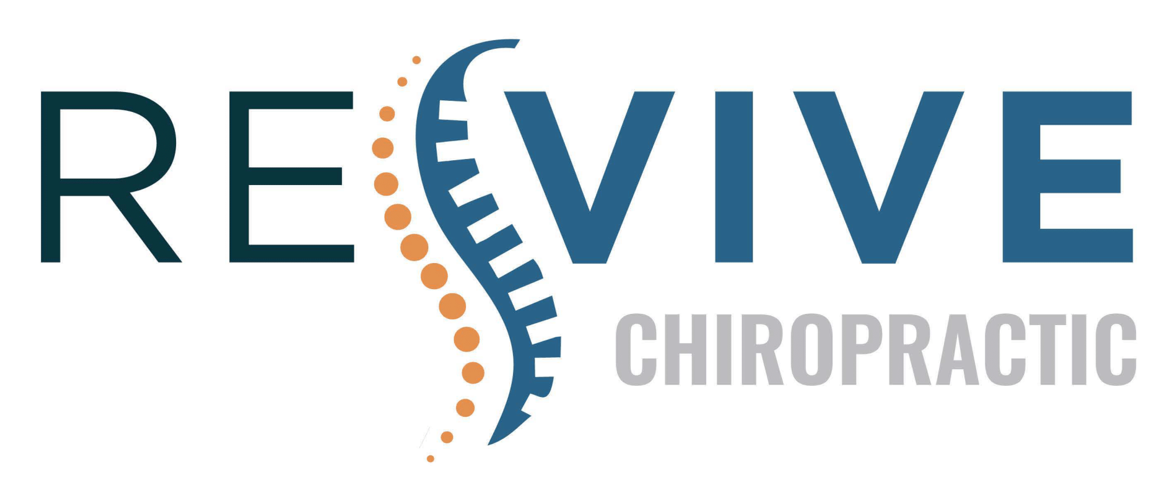If you've ever experienced the throbbing pain of a tension headache, you know how it can disrupt your daily life. You might be turning to over-the-counter medications or simply trying to power through the discomfort, but what if there's a more effective solution? Chiropractic care offers targeted treatments that address not just the symptoms, but the underlying causes of your headaches. By considering this approach, you could find a path toward lasting relief. So, what specific techniques and benefits can chiropractic care provide to help you regain control over your well-being?
Understanding Tension Headaches
Experiencing tension headaches can be frustrating, as they often stem from stress, muscle tension, or poor posture. You might find that these headaches creep up on you during particularly busy days or after long hours spent hunched over your computer. Understanding the causes can empower you to take action.
Tension headaches usually manifest as a dull, aching sensation that wraps around your head, making it feel as if there's a tight band squeezing your skull. Unlike migraines, they don't typically come with nausea or sensitivity to light, but they can still disrupt your daily activities.
You may notice that tightness in your neck and shoulders often accompanies these headaches, indicating that muscle tension plays a significant role.
Identifying your personal triggers is vital for prevention. Are you sitting for too long without taking breaks? Are you feeling overwhelmed by deadlines or personal obligations? Paying attention to these factors can help you manage your tension headaches more effectively.
Incorporating regular physical activity and practicing stress-reduction techniques, such as deep breathing or meditation, can also make a difference.
Maintaining good posture while sitting or standing is important, as it helps alleviate unnecessary strain on your muscles.
Common Symptoms and Triggers
When you experience tension headaches, recognizing common symptoms and triggers can make a big difference.
Physical stress factors, emotional triggers, and lifestyle influences often play a role in your discomfort.
Let's explore how these elements might impact your headaches and what you can do about them.
Physical Stress Factors
Tension headaches often stem from various physical stress factors that can manifest as common symptoms and triggers in your daily life. You might experience these headaches after long hours of sitting at a desk, especially if your posture isn't ideal.
Poor ergonomics, like an uncomfortable chair or a computer screen positioned too low, can lead to muscle tension in your neck and shoulders, causing pain.
Another physical factor is inadequate hydration. If you're not drinking enough water, your body may become dehydrated, triggering headaches.
Similarly, skipping meals can lead to fluctuations in your blood sugar levels, which can also provoke tension headaches.
Stress from physical activities, like lifting heavy objects or engaging in repetitive motions, can strain your muscles and lead to discomfort. Even something as simple as grinding your teeth can contribute to muscle tension, resulting in headaches.
Pay attention to how your body feels during these activities. Identifying these physical stress factors is essential for managing and preventing tension headaches effectively.
Emotional Triggers Identified
Physical stress factors are only part of the equation when it comes to tension headaches; emotional triggers play a significant role as well. You might notice that stress, anxiety, or even frustration can intensify or spark your headaches. These emotions often manifest physically, leading to muscle tightness, particularly in your neck and shoulders, creating a cycle of tension.
Common emotional triggers include work-related stress, relationship issues, or major life changes. If you find yourself frequently overwhelmed or unable to manage your emotions, these feelings can contribute to the onset of tension headaches.
You may also experience irritability, difficulty concentrating, and fatigue alongside your headaches, signaling that your mental state requires attention.
Identifying your emotional triggers is essential. Take a moment to reflect on what situations or feelings precede your headaches. Keeping a journal can help you track patterns and recognize when stress is building up.
Once you've identified these triggers, you can work on strategies to manage them, potentially reducing the frequency and intensity of your tension headaches. Remember, addressing emotional factors is just as important as dealing with physical stressors in your quest for relief.
Lifestyle Influences Explained
Lifestyle choices greatly impact the frequency and severity of tension headaches. If you find yourself frequently battling these headaches, consider how your daily habits might contribute to the problem.
Poor posture, especially during long hours at a desk, can lead to muscle tension in your neck and shoulders, triggering headaches.
Inadequate hydration is another common culprit. When you're not drinking enough water, your body can become dehydrated, which may lead to headaches.
Additionally, your diet plays a significant role; skipping meals or consuming excessive caffeine can also spark tension headaches.
Sleep patterns are essential too. If you're not getting enough quality rest, your body can become more susceptible to stress and tension, increasing headache frequency.
Stress management techniques, like regular exercise or mindfulness practices, can help alleviate some of the pressure.
Lastly, be mindful of your screen time. Too much exposure to screens without breaks can strain your eyes and neck, setting the stage for tension headaches.
The Role of Chiropractic Care
Chiropractic care offers various techniques that can help alleviate tension headaches.
By understanding these methods and the benefits of regular adjustments, you can take proactive steps toward relief.
Let's explore how chiropractic treatments can support your overall well-being and reduce headache frequency.
Chiropractic Techniques Explained
When it comes to managing tension headaches, understanding the various chiropractic techniques can be pivotal in finding relief. Chiropractors use a variety of methods tailored to your specific needs, each aimed at alleviating pain and restoring balance.
Here are three common techniques you might encounter:
- Spinal Manipulation: This technique involves applying controlled force to specific joints in your spine. It helps realign vertebrae, reduces muscle tension, and improves mobility.
- Soft Tissue Therapy: Chiropractors often use massage or trigger point therapy to relieve tight muscles around your neck and shoulders. This can ease the strain that contributes to tension headaches.
- Postural Education: Your chiropractor may assess your posture and provide exercises or ergonomic suggestions. Improving your posture not only reduces headache frequency but also enhances overall spinal health.
Benefits of Regular Adjustments
Regular adjustments can greatly enhance your overall well-being, especially for those suffering from tension headaches. By receiving consistent chiropractic care, you can experience reduced muscle tension and improved spinal alignment, which can alleviate the pressure that contributes to headache pain.
These adjustments help restore proper function to your nervous system, allowing your body to communicate more effectively. As a result, you might notice a decrease in headache frequency and severity.
Regular visits can also improve your posture, reducing strain on your neck and shoulders—key areas that often trigger tension headaches.
You'll likely find that with regular adjustments, your stress levels decrease, leading to a more relaxed state. This relaxation can play a significant role in headache prevention.
Additionally, chiropractors often provide you with personalized exercises and stretches to maintain the benefits of your adjustments, empowering you to take control of your health.
Incorporating chiropractic care into your routine means you're not just managing headaches; you're investing in your overall health. By prioritizing regular adjustments, you'll be better equipped to tackle daily challenges without the burden of tension headaches.
Benefits of Chiropractic Treatments
For those struggling with tension headaches, chiropractic treatments offer a promising avenue for relief. These treatments focus on realigning your spine and improving overall nervous system function, which can greatly reduce headache frequency and intensity.
Here are some key benefits you can expect from chiropractic care:
- Pain Reduction: Chiropractic adjustments target the root causes of tension headaches. By alleviating spinal misalignments, you can experience a decrease in pain and discomfort, making everyday activities much more manageable.
- Improved Range of Motion: Regular chiropractic sessions can enhance your neck and shoulder mobility. When these areas are more flexible, it reduces muscle tension, which is often a contributor to tension headaches. You'll likely notice that you can move more freely and without discomfort.
- Stress Relief: Chiropractic care isn't just about physical adjustments; it's also about addressing mental and emotional stressors. Many patients report feeling more relaxed and centered after their sessions, which can help prevent headaches triggered by stress.
Incorporating chiropractic treatments into your routine can provide you with a holistic approach to managing tension headaches. By focusing on your spine and overall wellness, you're not just treating the symptoms but also working toward long-term relief.
Chiropractic Techniques for Relief
Chiropractic techniques can effectively relieve tension headaches by targeting the underlying issues contributing to your discomfort. A skilled chiropractor will assess your spine, posture, and overall musculoskeletal health to identify misalignments or tension points. One popular technique they may use is spinal manipulation, which involves applying controlled force to specific joints. This technique aims to restore proper alignment, improve range of motion, and decrease pain.
In addition to spinal adjustments, your chiropractor might employ soft tissue therapies. These techniques focus on relaxing tight muscles and alleviating tension in the neck and upper back, areas often linked to tension headaches. Methods like massage, myofascial release, or trigger point therapy can considerably reduce muscle tightness and improve blood flow to the affected areas.
Another effective approach is stretching and strengthening exercises tailored to your specific needs. Your chiropractor can guide you through exercises that target the neck, shoulders, and upper back, helping to build resilience against future headaches. They may also recommend ergonomic changes to your workspace or daily activities to minimize strain on your body.
Finally, some chiropractors incorporate modalities such as heat therapy, cold therapy, or electrical stimulation to enhance relief and promote healing. These techniques can soothe inflamed tissues and help you achieve a more relaxed state.
What to Expect During a Visit
When you visit a chiropractor for tension headache relief, you'll start with a thorough assessment of your condition. This initial evaluation is essential and helps your chiropractor understand your specific symptoms and history. You'll discuss your headaches in detail, including their frequency, duration, and any triggers.
After the assessment, you can expect a physical examination. Your chiropractor will check your posture, spine alignment, and muscle tension, looking for areas that could be contributing to your headaches. Based on their findings, they'll develop a personalized treatment plan tailored to your needs.
Here's what you can generally expect during your visit:
- Treatment Techniques: Your chiropractor may use various techniques such as spinal manipulation, massage, or stretching exercises to relieve tension and improve mobility.
- Progress Monitoring: After your initial treatment, your chiropractor will want to monitor your progress. They'll ask about any changes in your headache frequency or intensity and adjust your treatment plan as needed.
- Home Care Advice: Expect some recommendations for exercises or stretches you can do at home. Your chiropractor might suggest ways to improve your posture or manage stress, both of which can help reduce tension headaches.
Lifestyle Changes to Consider
Making some lifestyle changes can greatly reduce the frequency and intensity of tension headaches. Start by evaluating your daily habits. If you spend hours hunched over a computer or phone, you're likely putting unnecessary strain on your neck and shoulders.
Try adjusting your workspace to promote better posture. Use ergonomic chairs, position your screen at eye level, and take regular breaks to stretch and move around.
Next, pay attention to your hydration. Dehydration can trigger headaches, so aim to drink plenty of water throughout the day. It's also essential to maintain a balanced diet. Eating regular meals that include plenty of fruits, vegetables, and whole grains can help stabilize blood sugar levels, which may reduce headache occurrences.
Sleep plays a vital role too. Aim for seven to eight hours of quality sleep each night. Establish a consistent sleep schedule by going to bed and waking up at the same time daily.
Create a relaxing bedtime routine to help you unwind, minimizing screen time before bed.
Additionally, consider incorporating stress-reducing activities into your routine. Practices such as yoga, meditation, or deep breathing exercises can help manage stress effectively.
Regular physical activity is also beneficial; try to include at least 30 minutes of exercise most days of the week.
Success Stories and Testimonials
Many individuals have experienced significant relief from tension headaches through chiropractic care, sharing their success stories with enthusiasm.
You might find it inspiring to hear how others, just like you, have transformed their lives by seeking professional help. These testimonials highlight the positive impact chiropractic adjustments can have on alleviating pain and improving overall well-being.
Here are three compelling success stories:
1. Emily's Journey: After battling tension headaches for years, Emily decided to give chiropractic care a try. Within just a few sessions, she noticed a dramatic reduction in the frequency and intensity of her headaches.
With a tailored treatment plan, she now enjoys activities like yoga and hiking without the fear of discomfort looming over her.
2. John's Relief: John struggled with chronic tension headaches that affected his work and personal life. Skeptical at first, he was amazed when his chiropractor pinpointed the root cause.
After a series of adjustments, John's headaches became less severe, allowing him to focus better at work and enjoy quality time with his family.
3. Sarah's Transformation: For Sarah, tension headaches were a daily battle. After starting chiropractic care, she experienced not only pain relief but also improved sleep and reduced stress levels.
Now, she feels rejuvenated and ready to tackle her busy lifestyle.
These stories demonstrate that you, too, can find relief and reclaim your life through chiropractic care.
When to Seek Professional Help
Recognizing the signs that it's time to seek professional help for tension headaches can greatly impact your quality of life. If you frequently experience headaches that disrupt your daily activities or if they're becoming more intense or persistent, it's vital to consult a healthcare provider.
Don't ignore these warning signs; they could indicate an underlying issue that needs attention.
Pay attention to how your headaches are affecting you. If you find that over-the-counter medications aren't providing relief or if you're relying on them more often, it's time to seek help.
Additionally, if your headaches are accompanied by other symptoms—like vision changes, nausea, or dizziness—don't hesitate to reach out to a professional. These symptoms could signal that your tension headaches are more than just a simple annoyance.
Another important factor to reflect upon is how long your headaches last. If they persist for several days or return frequently, it's a sign that you need to investigate further.
A chiropractic evaluation can help identify any misalignments or tension in your spine that might be contributing to your headaches.
Lastly, if your headaches are affecting your sleep, mood, or overall well-being, seeking professional help is essential.
Chiropractic care can provide a holistic approach to alleviating tension headaches, helping restore balance and improve your quality of life.
Don't wait—take charge of your health today.
Conclusion
Don't let tension headaches control your life any longer. By exploring chiropractic care, you can target the root causes of your pain and find lasting relief. With personalized treatment plans and effective techniques, you can improve your posture, reduce muscle tension, and enhance your overall well-being. Take the first step towards a headache-free life today—schedule an appointment with a chiropractor and start your journey to better health and happiness!



